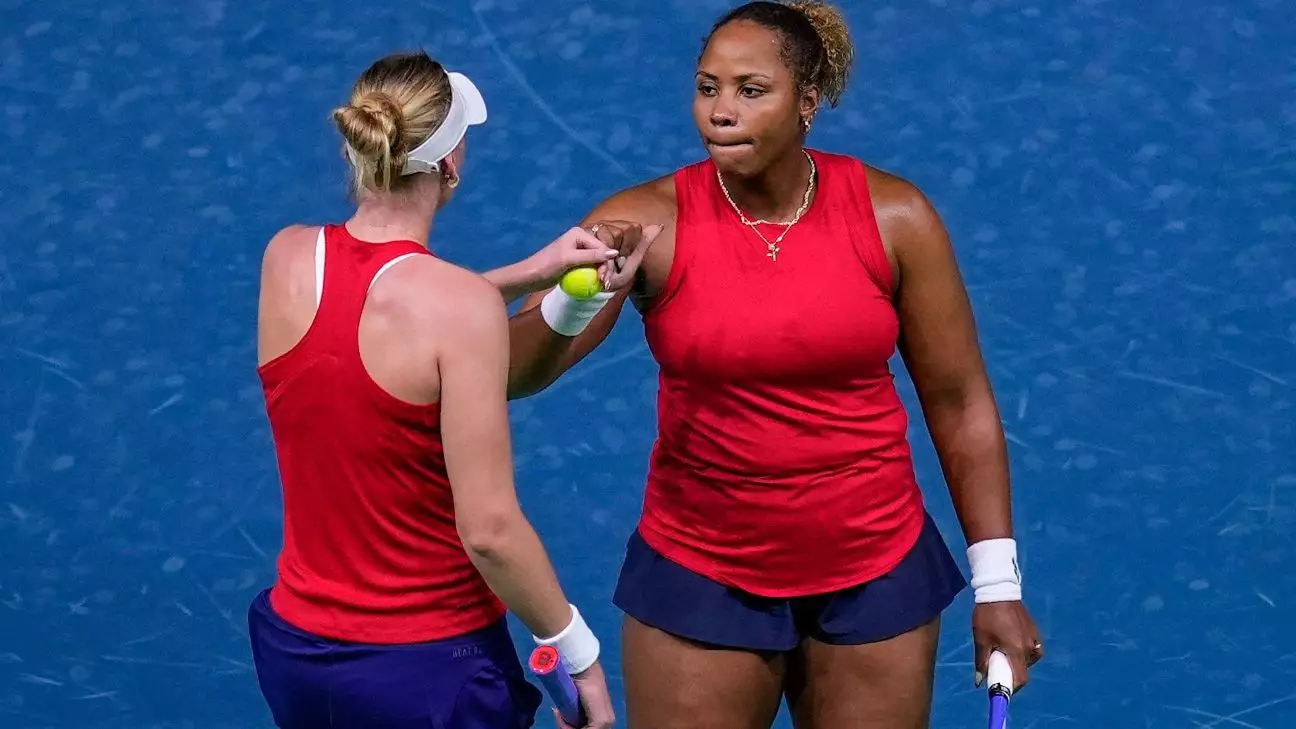The Billie Jean King Cup Finals witnessed a heart-stopping series of matches that culminated in the early morning hours of Friday in Malaga, Spain. Among the most compelling narratives to emerge from this tournament was the valiant effort of the American duo, Ashlyn Krueger and Taylor Townsend, who faced off against Slovakia in a match that ultimately sealed the fate of the United States team in this prestigious event.
The doubles match was nothing short of a thriller, teetering on the edge of despair and hope for the American pair. Starting the third set perilously behind at 9-2, Krueger and Townsend’s resilience shone through as they clawed back to level the score at 10-8. Their determination to save six match points only adds to the drama, painting a vivid picture of sportsmanship and tenacity. However, despite their extraordinary fight, they ultimately fell short against Tereza Mihalikova and Viktoria Hruncakova, exemplifying the unpredictable nature of competitive sports.
In stark contrast, the first singles match had offered a glimmer of hope as Townsend secured a vital point by overcoming the young Slovakian player Renata Jamrichova in straight sets. This victory set the stage for a tense showdown, yet it also demonstrated the razor-thin margins that define these competitions. Danielle Collins’ subsequent loss to Rebecca Sramkova not only evened the tie but echoed the universal truth that no lead is safe in this high-stakes arena.
With the defeat of the American team, Slovakia moved forward to face Australia in the quarterfinals. This turning point highlights Slovakia’s ability to capitalize on critical moments, which is essential in team competitions like the Billie Jean King Cup. One can’t help but marvel at the depth of talent among the participating nations, including Japan, who made headlines by defeating Romania in another close match.
Japan’s achievement in reaching the quarterfinals for the first time since 2013 emphasizes the evolution of women’s tennis in the country. The combination of Eri Hozumi and Shuko Aoyama proved to be a formidable force, ultimately deciding the tie by overcoming Monica Niculescu and Elena-Gabriela Ruse. Ana Bogdan’s earlier victory for Romania put them in the lead, yet Ena Shibahara’s strong performance restored parity, emphasizing the back-and-forth nature characteristic of elite-level tennis.
What adds an additional layer of significance to this event is the backdrop of extreme weather conditions that forced rescheduling of matches due to severe alerts in Malaga. The unpredictable weather reflects the wider challenges faced not just by athletes, but by the organizing committees who must adapt and respond quickly to ensure the tournament runs as smoothly as possible.
Moreover, it’s crucial to acknowledge the recent natural disasters that have impacted the region, where flash floods tragically claimed more than 200 lives in Valencia. In light of this dire situation, the International Tennis Federation’s donation to the Spanish Red Cross signifies a commitment to social responsibility that transcends the sport. Additionally, Spanish player Paula Badosa’s pledge to donate half of her prize money reflects a commendable display of empathy and support in the face of adversity.
Evolution of Tennis Tournaments
This edition of the Billie Jean King Cup Finals also marks a milestone as it takes place concurrently with the Davis Cup Finals, an unprecedented occurrence. It’s a moment of unification in a sport that has often been seen as divergent based on gender. With identical prize money being awarded to both competitions, the tennis community can take a step towards equality, a principle that the late Billie Jean King championed throughout her career.
As the tournament progresses, the anticipation grows for the upcoming matches while reflecting on the stories from those that have already unfolded. The essence of sports lies not just in victory but in resilience, community, and the ability to uplift one another through shared experiences, both on and off the court. Coaches, athletes, and fans alike will certainly remember this tournament long after the final point is played—the struggles faced, the hurdles overcome, and the spirit of competition that binds them all.

